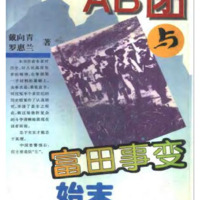
AB Corps and the Futian Incident
In 1930, a mutiny erupted in the Red Army in the town of Futian. In the ensuring purge, more than 700 officers were executed. After this, the campaign to root out Anti-Bolshevik (AB) groups spread to various parts of China, with 70,000 executed. Occurring just nine years after the founding of the CCP, it is one of the earliest and most significant purges in the party's early history.
The first person to pay attention to the Futian Incident was Professor Dai Xiangqing of the Jiangxi Provincial Party School. Starting in late 1979, he and other colleagues went to southern Jiangxi to collect materials, conduct interviews and investigate, and found that this was an unjust and wrong case, and began to publish articles on the matter.
In the early 1980s, Dai Xiangqing sent his article to a senior general in the PLA, Xiao Ke. After that, the research on the Futian Incident attracted the attention of senior central officials. The CCP's party history research agency sent people to Hunan and Jiangxi to investigate and collect materials. The Organization Department of the Central Committee of the Communist Party of China sent a review team for the Futian Incident and reported the vindication documents to the central government, but even today there is currently no official conclusion on the matter.
This book is an important study of the early history of the Communist Party of China, often mentioned by prominent independent historians, such as Yang Kuisong. As an officially recognized research project, this book does not make ideological breakthroughs, but its detailed historical materials, and its data index make it particularly valuable for understanding this historical event.
This book was published by Henan People's Publishing House in 1994.

Mao in Power (1949-1976)
The author of this book, Shan Shaojie, is a scholar from mainland China. For several years, he wrote this book from an independent position. Former political secretary of Mao Zedong, Li Rui, and Princeton University professor, Yu Yingshi, wrote the foreword for this book. In addition to a systematic account of the Maoist era, Shan Shaojie's book "Mao in Power" emphasizes that almost all members of the Communist Party's highest decision-making echelons, with the exception of Mao Zedong, made efforts, in varying degrees and successively, to stop Mao's insanity. Moreover, they took turns to resist and ultimately to leave Mao alone, but did not really stop Mao's madness. This book was published by Linking Publishing in 2001 and has been reprinted several times.

Pastor Wang Yi's Anthology: Carrying the Cross - A History of Chinese Family Churches
Wang Yi, of Chengdu, Sichuan Province, is a well-known Chinese intellectual who later became a pastor. The Early Rain Reformed Church that he led was one of the most famous unregistered churches in China. The church occupied the floor of an office building in Chengdu and had its own bookstore, seminary, and pre-school. It regularly had services of hundreds of people. Later, the church had internal conflicts, while at the same time Wang became more outspoken in his criticism of the government. In 2018, he criticized Xi Jinping for abolishing term limits and allowing himself to become ruler of China for life. Pastor Wang was sentenced to nine years in prison in 2019.
This book is based on the recordings of Pastor Wang's classes at Early Rain in 2018. The first five chapters were reviewed by Pastor Wang himself, but he was arrested before he could complete the review of the last five chapters. The essays cover key issues that concerned Wang, including the role of the church in China as a city on the hill, the role of the Reform church in China, and the history of unregistered churches in China.

Free Zhang Zhan
Zhang Zhan, born in 1983, is a Chinese lawyer and a dissident of the Communist Party system. In early February 2020, she rushed from Shanghai to Wuhan, which was under lockdown due to the COVID-19 epidemic, to conduct on-the-spot interviews and released a series of video reports on Wuhan's lockdown. More than three months later, she was arrested by Chinese police for "picking quarrels and provoking trouble" and taken to Shanghai for detention.
In December 2020, she was sentenced to four years in prison for picking quarrels and provoking trouble. Zhang Zhan went on hunger strike in the detention center and prison, and there were reports that he was critically ill several times. Her courage and resistance attracted the attention of the international community.
The book *Free Zhang Zhan* was edited and created by Wang Jianhong, the head of the "Zhang Zhan Concern Group" on the Internet. It brings together Zhang Zhan's articles and self-media posts published on the Internet, as well as interviews of Zhang Zhan before she lost her freedom, and interviews, as well as poems and articles from outsiders supporting Zhang Zhan. The book reviews the course of Zhang Zhan's case, Zhang Zhan's struggle in prison and the repercussions it aroused at home and abroad. It was published on May 13, 2024 when Zhang Zhan was released from prison after serving her sentence.
This book preserves and records the history of Wuhan's lockdown in China due to the COVID-19 epidemic. Nowadays, Zhang Zhan's articles and words of support for her have been censored and blocked in China, which makes the book even more precious.

Poppies under the Red Sun: The Opium Trade and the Yan'an Model
In the 1990s, history scholar Chen Yongfa made a fundamental study of the opium economy two decades before the founding of the CCP and completed a monograph, "Poppies under the Red Sun: The Opium Trade and the Yan'an Model". Since then, more and more research articles have been written on the subject, and new information has appeared. Subsequently, the phenomenon of the opium economy of the CCP's Yan'an regime has also became an important field of study.
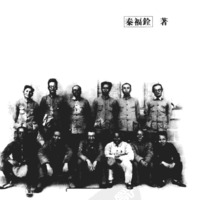
Bo Gu and Mao Zedong - and the Leaders of the Chinese Soviet Republic
Bo Gu (博古), real name Qin Bangxian (秦邦憲), was the top leader of the Chinese Communist Party (CCP) from 1931-1935, leaving his post as General Secretary of the CCP after the Zunyi Conference. The author of this book, who is Bo Gu's nephew, describes some important historical points in the early days of the Communist Party, the various activities among the top leaders of the CCP, such as Mao Zedong, and their relationships through the narratives and circumstantial testimonies of a number of knowledgeable people.

Rethinking China's Democracy Movement
Author Hu Ping was involved in the Xidan Democracy Wall movement in the late 1970s and now lives in the United States.
He has successively chaired the pro-democracy publications <i>China Spring</i> and <i>Beijing Spring</i>. This book, published in 1992, analyzes the reasons for the failure of the June Fourth Movement and summarizes the lessons learned. The last two chapters suggest how to continue the pro-democracy movement in the future.
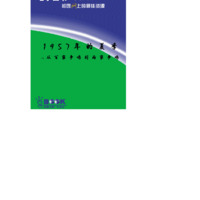
Summer of 1957: From One Hundred Schools of Thought to Two Schools of Thought
This book comprehensively records and analyzes the Anti-Rightist Campaign.
The author Zhu Zheng was born in 1931. He was once the editor of Hunan People's Publishing House and a well-known expert on Lu Xun in China. He was classified as a Rightist in 1957 and personally experienced the Anti-Rightist Campaign. This book references information from CCP party newspapers at that time, as well as his recollections, making this book informative and reliable.
The "two dueling schools of thought" in the subtitle of this book comes from The Selected Works of Mao Zedong. Mao called for one hundred schools of thought to contend but in fact only intended for two to compete: the bourgeoisie and the proletariat.
This book was first published by Henan People's Publishing House in 1998. It is one of the earliest studies of the movement in China.
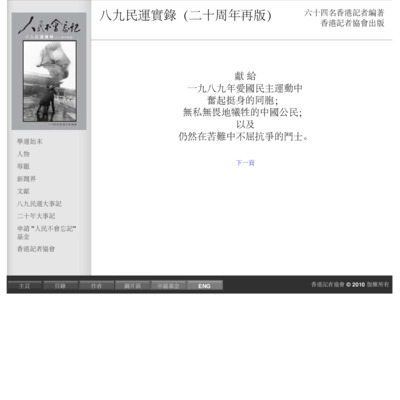
The People Will Not Forget: A Chronicle by 64 Hong Kong Reporters
This book, published by the Hong Kong Journalists Association, collects the June 4 reports from 64 Hong Kong journalists. The first edition was released in July 1989, and the book was reprinted on the 20th anniversary of June Fourth in 2009.
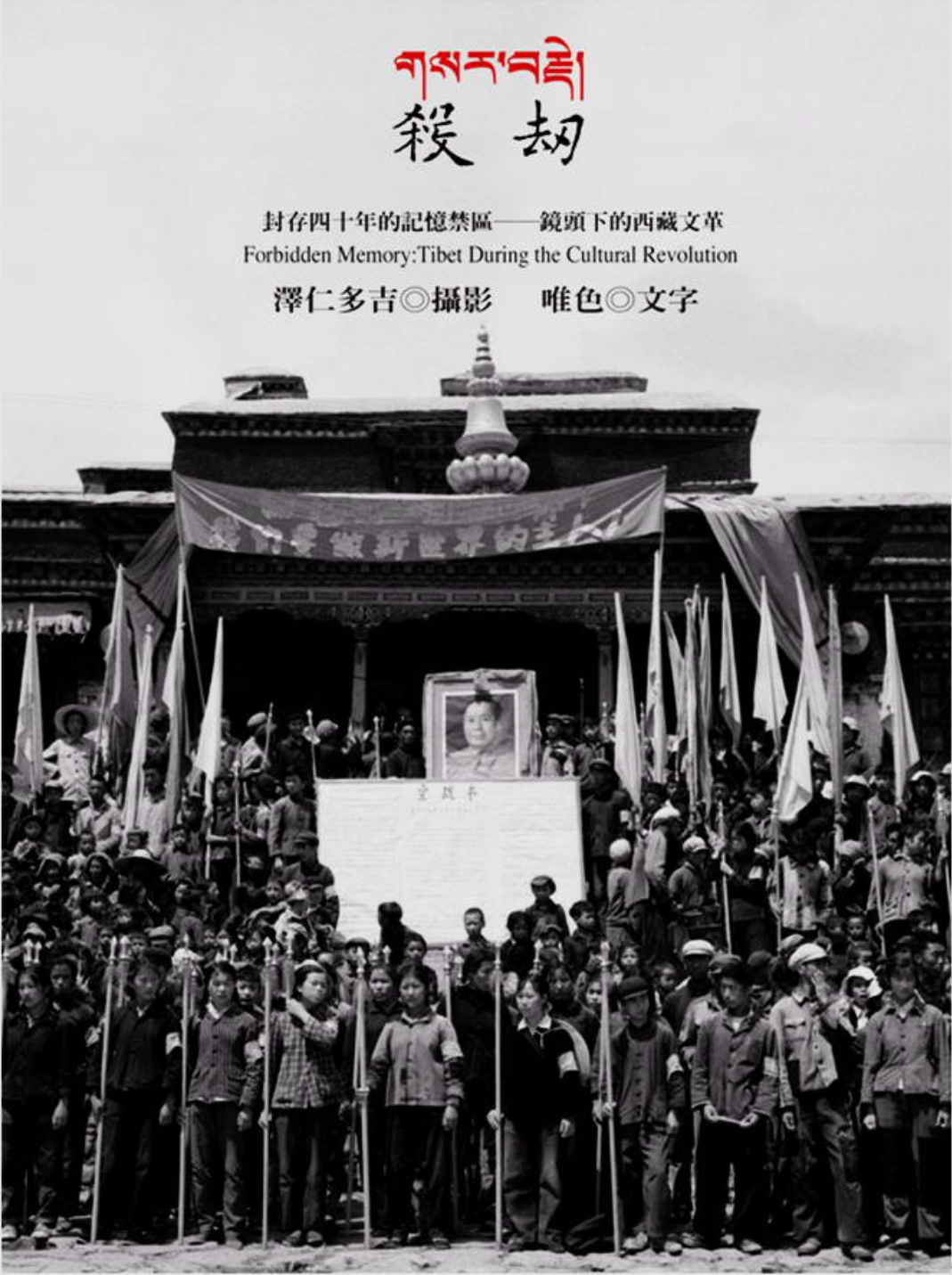
Killing and Hijacking: Tibet's Cultural Revolution Through the Lens
In 1966, when the flames of the Cultural Revolution began to spread, writer Tsering Woeser (唯色) was born in the General Hospital of the Tibetan Military Region. Her father was an officer in the People's Liberation Army (PLA) in Tibet at the time, and an avid photographer. Through his camera lens, the officer recorded the most comprehensive collection of images of the Cultural Revolution in Tibet to date. Tsering Woeser, on the other hand, restores and records the story behind the camera lens: It was an attempt to fight against oppression and preserve the true history of Tibet during the Cultural Revolution.
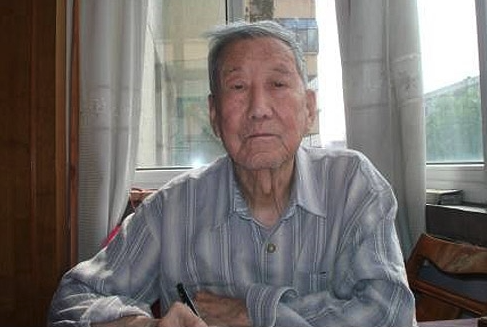
Journey of Grace, The
Li Jinghang, a native of Tianshui City, Gansu Province, 1922-2016, graduated from the Mathematics Department of the Northwest Normal College in 1949. In the fall of the same year, he was employed as a mathematics teacher at Tianshui No. 1 Middle School. In 1957, he was wrongly classified as a Rightist and sent to Jiuquan, Gansu Province to be reeducated through labor for nearly three years; in 1960, he resumed his work as a teacher at Tianshui No. 1 Middle School. In 1962, he removed his hat as a Rightist. He was rehabilitated in 1978. In 1980, he was transferred to Tianshui Teachers' College (which was upgraded to an undergraduate institution in 2000). After retiring in the fall of 1987, he joined the Church to serve full-time.
In 1957, Li Jinghang was labeled a rightist and sent to Jiabiangou for re-education through labor. In 1960, he was transferred to the Mingshuihe Farm in Gaotai, where the conditions were even worse, and he was subjected to a great deal of torture and abuse. The fourth chapter of his autobiography, "Chronicle of the bitter life in Jiabiangou," and the fifth chapter, "Chronicle of the life after returning home," are written about his bitter experience in Jiabiangou. From this, we can see the glory of humanity and the power of faith in the midst of suffering. This book was published by a Hong Kong Tianma Book Company Limited in 2003, with a print run of 2,000 copies, and reprinted once in 2004.
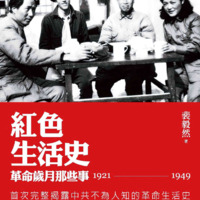
Red Life History - The Revolutionary Years (1921-1949)
Professor Pei Yiran's book is the first complete revelation of the untold revolutionary history of the CCP. The book covers many important points in the history of the CCP, including the use of Soviet rubles to build the party, the landlords fundraising campaign, and the love life of Mao Zedong and Jiang Qing, among subjects.
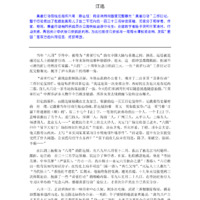
Operation Yellow Bird
After the bloody suppression of the June 4 Democracy Movement, the Chinese Communist Party went on a massive manhunt for the key figures of the movement. Some Hong Kong people organized a secret channel to help pro-democracy activists escape from the Mainland, codenamed "Operation Yellow Bird." The author of this book, Jiang Xun, is a veteran of the media and describes in detail how the "Yellow Bird Operation" took place.

Gu Zhun and His Times
This book is about Gu Zhun, a Chinese economist, historian and philosopher. Gu Zhun was the first person to put forward the theory of China's socialist market economy, which became a key concept in the Reform era, helping to justify the use of markets in a socialist system. He also devoted himself to the study of politics, history and philosophy, translating several foreign classic works on economics and democracy and writing a large number of articles. Due to his independent thinking and dissent, he suffered repeated political persecution, including during the Anti-Rightist Campaign and the Cultural Revolution (for more information on Gu Zhun, see his biographical entry). As he personally experienced the Anti-Rightist Campaign, the Great Famine, and the Cultural Revolution, his diary is also considered a valuable source of information on these historical events. By documenting and analyzing his life, thoughts, and the eras in which he lived, Wang's book shows how Gu Zhun persisted in his "pursuit and search for the freedom and equal rights that are inherent to all human beings " (author's preface) in an era when independent thinking was suppressed. This book was published in 2015 by the Great Mountain Culture Publishing House in Hong Kong.

Mao: The Unknown Story
This book presents the dramatic life of Mao Zedong, revealing a wealth of unheard-of facts: why Mao joined the Communist Party, how he came to sit at the top of the Chinese Communist Party, and how he seized China step by step. Writers Jung Chang and her husband Jon Halliday took ten years to complete this book, interviewing hundreds of Mao's relatives and friends, Chinese and foreign informants and witnesses who worked and interacted with Mao as well as dignitaries from various countries.
Purchase link:https://www.amazon.com/Mao-Story-Jung-Chang/dp/0679746323.
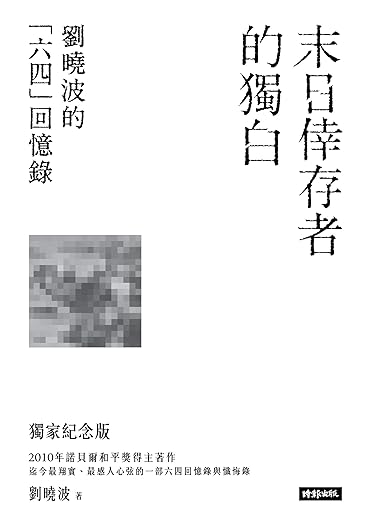
Monologue of a Doomsday Survivor: About Me and June 4
购书链接:https://www.kobo.com/hk/zh/ebook/ZoerWPfG8TiqoXIYwvW2iw。
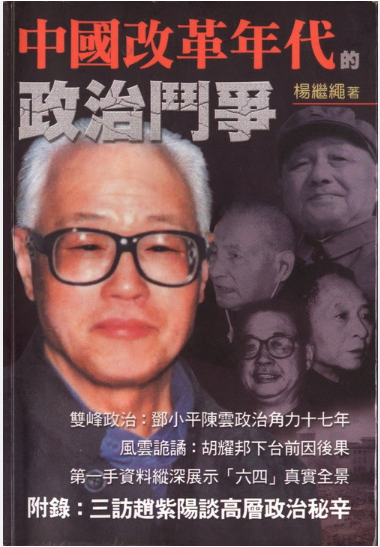
Political Struggles in China's Reform Era
The author of this book, Yang Jisheng, is a veteran journalist with 35 years of experience in journalism at Xinhua News Agency, China's official news organization. He knows a great deal about the ups and downs of Chinese politics after the end of the Cultural Revolution as well as the intricate power struggles at the top and has a lot of first-hand information. He personally interviewed Zhao Ziyang, Zhu Houze, Li Rui, Ren Zhongyi, An Zhiwen, Tian Jiyun, and other important people. “Political Struggles in China's Reform Era”, first published in Hong Kong in November 2004, was the subject of a series of crackdowns by the authorities against Yang Jisheng. It was republished in 2010 by Hong Kong's Cosmo Books.

Wang Dan's Memoirs: From June 4 to Exile
Written by Wang Dan, a leader of the June Fourth Movement, this book reviews his diary from childhood to adulthood, and examines every twist and turn in his life. Influenced by a book in high school, Wang Dan strongly questioned his faith in the Communist Party. His life changed dramatically when he became a propagandist for democracy on the campus of Peking University. Later, he became one of the leaders of the 1989 student movement.

Sparks: A Chronicle of the Rightist Counter-Revolutionary Group at Lanzhou University
During the worst years of the 1960 famine, a group of teachers and students at Lanzhou University decided to publish an underground publication, <i>Spark</i>, to alert Chinese people to the growing disaster and expose the authoritarianism of the Chinese Communist Party. Only two issues of this underground publication were printed before it was broken up as a counter-revolutionary group case and 43 people were arrested.
The author of this book, Tan Chanxue, was a key participant and helped save the memory of <i>Spark</i> from being lost. Tan was the girlfriend of Zhang Chunyuan, the magazine's founder, and participated in key moments of the magazine's short lifespan. She was sentenced to 14 years in prison, but was later released and rehabilitated, and taught at the Jiuquan Teachers' Training School. In 1982, she was transferred to the Dunhuang Research Institute as an associate researcher, and retired in 1998, settling in Shanghai.
It is largely through Tan's efforts that we know about <i>Spark</i>. She was able to look into her personnel file (<i>dang'an</i>), where she discovered the issues of the magazine, as well as confessions of the people arrested, and even her love letters to Zhang. She photographed this material and later it was turned into PDFs, which circulated around China starting in the late 1990s, helping to inspire books and movies.

In the Palm of Buddha (Updated Edition)
Zhang Dongsun is an unavoidable but deliberately obscured figure in modern China. Considered the earliest translator of Western philosophy, a famous newspaperman, political commentator, and professor at Yenching University; the first mediator between the Kuomintang and the Communist Party in 1949, and the first Central People's Government Member. He was convicted of treason in 1951 and disappeared. The well-known writer and journalist Dai Qing completed this historical documentary after eight years of investigation and writing and nearly ten years of revising and updating. Taking Zhang Dongsun's life as the main theme, he wrote about changing times from the late Qing dynasty to the Cultural Revolution.
An expanded edition of this book will be published by the Chinese University of Hong Kong Press in 2022. The following is the link to purchase books from the publisher:
https://cup.cuhk.edu.hk/index.php?route=product/product&product_id=3466